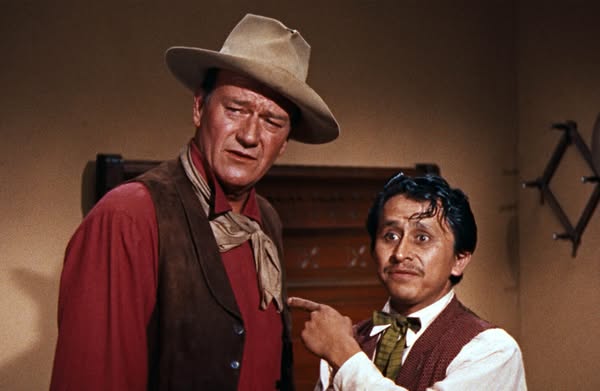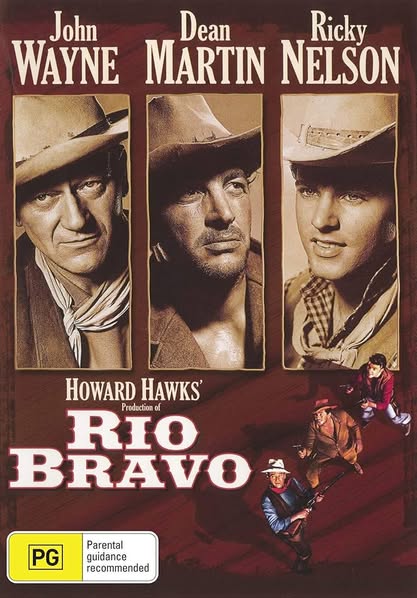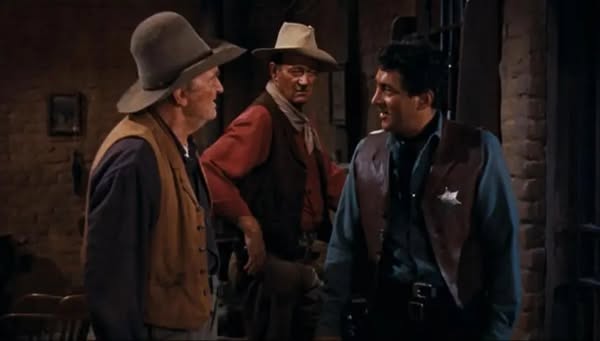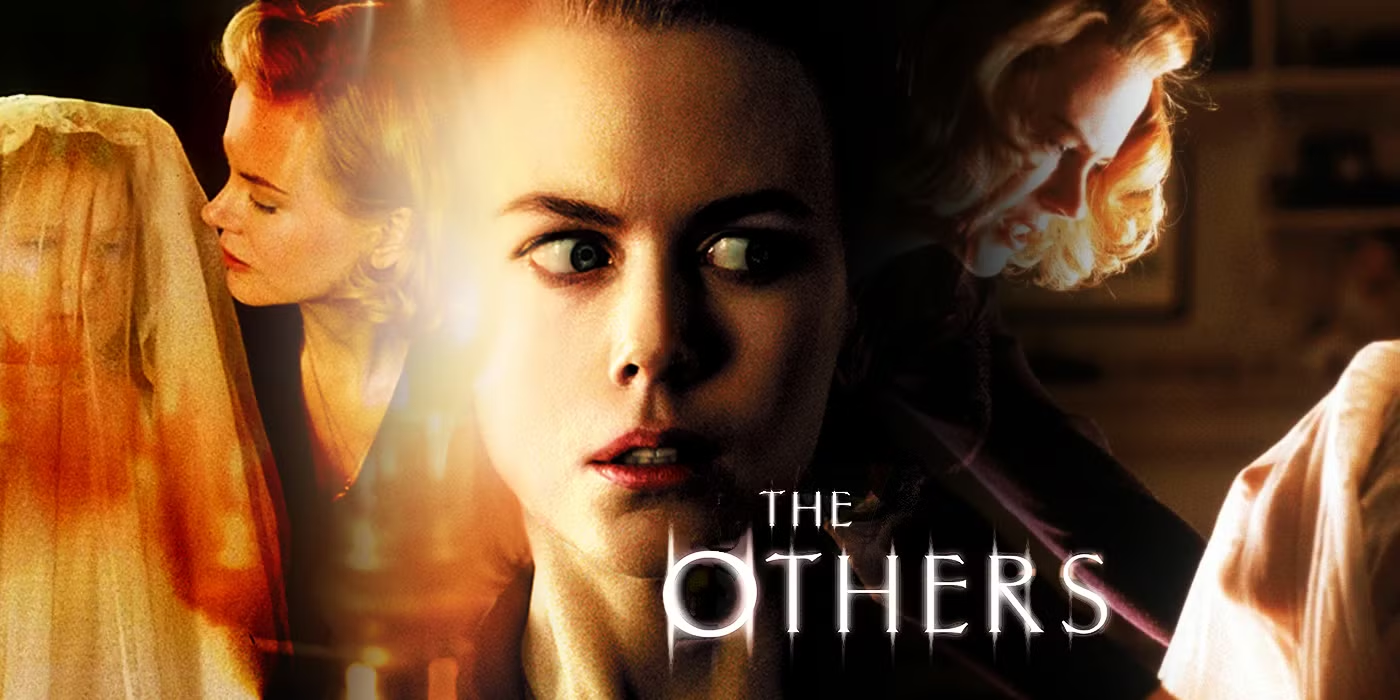Rio Bravo (1959)

Rio Bravo (1959), directed by Howard Hawks, is a classic Western that has become a defining film of the genre. Starring John Wayne as Sheriff John T. Chance, Dean Martin as the recovering alcoholic Dude, and Angie Dickinson as the strong-willed Feathers, the film explores themes of friendship, loyalty, and the struggle between good and evil in a lawless frontier town.
The plot centers around Chance, who is tasked with holding a notorious criminal, Joe Burdette (played by Claude Akins), in jail until a U.S. marshal can arrive to transport him to trial. As Chance and his small group of allies, including Dude and the elderly deputy Stumpy (Walter Brennan), prepare for Burdette’s gang to attempt a rescue, tensions rise. The film unfolds primarily within the confines of the town’s jail, creating a claustrophobic atmosphere that heightens the stakes.

Hawks’ direction is characterized by a focus on character development and dialogue-driven scenes, allowing the relationships between characters to take center stage. The camaraderie between Chance and Dude is particularly poignant, showcasing the struggle of overcoming personal demons and the importance of friendship in times of crisis.
John Wayne delivers a commanding performance as the stoic sheriff, embodying the archetypal Western hero. Dean Martin’s portrayal of Dude adds depth to the narrative, as his character grapples with self-doubt and addiction, ultimately finding redemption through his friendship with Chance. Angie Dickinson’s Feathers provides a strong female presence, contributing to the film’s exploration of gender dynamics in the Old West.

The film’s cinematography captures the sweeping landscapes of the American Southwest, enhancing the sense of isolation and danger that permeates the story. The score, composed by Dimitri Tiomkin, complements the film’s emotional beats, reinforcing the tension and excitement of the action sequences.

In conclusion, Rio Bravo is a quintessential Western that masterfully blends action, character development, and themes of loyalty and redemption. Its memorable performances, sharp dialogue, and strong direction have solidified its status as a classic in American cinema. The film not only pays homage to the Western genre but also redefines it, making it a must-see for fans of classic film and storytelling.











